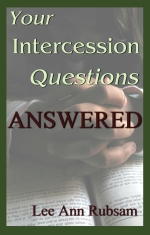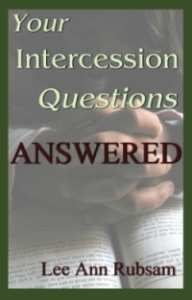
We have a growing problem in the modern Church. It is emerging through ministry leaders, such as those mentioned in Ephesians 4:11: apostles, prophets, evangelists, pastors, and teachers. Not all of them are equipping/perfecting the saints as intended by the Lord. Instead of helping the saints grow into maturity, some are claiming “new revelation” which cannot be supported by the Bible (or even worse, contradicts the Bible). Some of the very people who have been called to protect God’s beloved children from being “tossed to and fro, and carried about with every wind of doctrine” (Ephesians 4:14) are infected with those errant ideas themselves — and teaching them to others.
I don’t believe the majority of them are intending to promote wrong things. They enthusiastically believe the deceptions they are popularizing. Often, it is a result of these leaders listening to one another or reading each other’s works without questioning or discerning what is being said, and then passing it on because it sounds convincing. They have too quickly swallowed someone else’s “revelation” without checking it against the Bible. After a while, even more extreme teaching arises, built on the faulty foundation of previous dubious ideas. Error breeds greater error.
We should keep this in perspective. There are indeed many faithful leaders who are doing their best to stay true to God’s Word. They are not basing what they teach on Bible verses lifted out of context or on a supernatural experience alone. They take their job of feeding God’s flock very seriously. But, with social media at everyone’s fingertips, new opportunities have arisen for unreliable teachers and prophets to gain vast followings, especially through YouTube.
How do we escape being bamboozled in the midst of it all? Let’s look at some spiritual and common sense guidelines to help us:
Avoid “new revelation” not mentioned in the Bible. If Jesus or the first apostles didn’t teach it, or if it wasn’t known to the New Testament Church, that’s an obvious red flag. If believers over the entire last 2,000 years had no knowledge of it, it isn’t genuine. Yes, sometimes teachers in our time rediscover truths that were lost or watered down over the centuries. God will use people to resurrect what has always been in Scripture, but that is not the same as coming up with totally new stuff.
Beware of teaching which is based solely on a verse here or there. These are usually verses lifted out of context, most often from the Old Testament. They are frequently obscure verses, but people wanting to come up with a new angle will build massive teachings around them. It’s been going on since the Church began, but we haven’t learned our lesson, yet, have we? Consider the new teaching in light of the whole Bible. Scripture can always be relied upon to interpret other Scripture.
Does the teaching measure up against the “many witnesses” principle which Paul taught? Paul charged Timothy, “And the things which you have heard from me among many witnesses, commit those same things to faithful men, who will be able to teach others also” (2 Timothy 2:2).
Paul repeatedly warned Timothy to avoid and shut down “other doctrines,” “fables and endless genealogies which minister questions, rather than godly edifying,” “profane and old wives’ tales,” and “vain babbling and oppositions of what is falsely called science” (1 Timothy 1:3, 4; 4:7; 6:20). He warns that these teachings will only lead to more ungodliness and eat away at their listeners like gangrene (2 Timothy 2:16, 17), leading people to err from the faith (1 Timothy 6:21).
Does the supposed new truth take you into any kind of legalism or self-help? Measure the “revelation” against Paul’s letter to the Galatians. If the thrust of the teaching is methodology you must follow exactly in order to please God or to receive what you desire, it is off-base. While truthful instruction can still give us practical ways to move forward with Jesus, it will always point toward dependence on Him, not toward what we must ritualistically do to succeed.
Does the teaching follow legalistic patterns which provide your magic prayer bullet for getting answers? Immerse yourself in Jesus’ extensive instruction on prayer in the gospels. How does the new teaching stack up against what He said? What did the apostles in the New Testament say about intercession and receiving answers? How did the Old Testament saints succeed in prayer? Find out by reading their words — without a running commentary from someone trying to expand upon it or take away from it.
God does not put us through difficult hoops before He is willing to grant our requests. He does not disqualify our petitions on minor technicalities. Anytime someone tells you that eureka! they have discovered a brand new or long-hidden way to pray which will give you answers every time (if you do it exactly, infinitesimally right), just run. They are deceived and are lying to you.
Does the teacher major on supernatural manifestations above all else? Take note if the person rarely talks about Jesus, His atonement for us at the cross, and core scriptural truths. Is the focus on supernatural encounters and signs, rather than on the Lord? Signs and wonders follow believers who focus on the gospel. Let’s not get that turned around to where we are chasing the signs and wonders.
An alarming trend right now is prophetic people claiming to interact with deceased saints — and they want to teach you how to do it too! This is a dangerous deception. Beware of the fixation with the “cloud of witnesses” (Hebrews 12:1), which, in the Bible, is a reference to the people of faith listed in Hebrews 11, along with others like them. But currently, all sorts of silly teaching about how to interact with the cloud of witnesses is being spewed upon gullible Christians. 1 Timothy 4:1 warns that “in the latter times some will depart from the faith, giving heed to seducing spirits and doctrines of devils.”
If a Bible teacher puts a new spin on the meaning of a verse, don’t take their word for it. Check how that verse reads in several translations. Read the before-and-after verses to see if what the teacher is saying fits. When they tell you a word or phrase within a verse actually means such-and-such in the original Greek or Hebrew, look it up in a concordance or two to see if they’re correct — especially if you’ve never heard it presented like that before.
What does the Holy Spirit say to you about it? If the teaching is something new to you, listen to whether the peace of God is ruling or not ruling in your heart about it, as Colossians 3:15 instructs. Does it set right, or does it make you uneasy? Ask God to speak to you about it through Bible verses. He will. Just give Him time. John 14:26 promises, “But the Comforter, Who is the Holy Spirit, Whom the Father will send in My name, shall teach you all things and bring all things to your remembrance, whatever I have said to you.”
The best protection against new revelation deception is to prayerfully read the Bible — all of it — over and over. It will keep you “girded about with truth” (Ephesians 6:14), so that you won’t get off in weird places.
____________________________

Yes and Amen: God’s Promises from Genesis Through Revelation
Available in King James Version or Modernized KJV
















 But when He, the Spirit of truth, has come, He will guide you into all truth — John 16:13
But when He, the Spirit of truth, has come, He will guide you into all truth — John 16:13


 If you have not yet noticed, it’s time to pay attention. A political spirit is having a field day in America. It is stirring up strife and anger to levels we have not seen in many decades.
If you have not yet noticed, it’s time to pay attention. A political spirit is having a field day in America. It is stirring up strife and anger to levels we have not seen in many decades.
 I’ve mentioned before that since the beginning of the year God has been impressing upon me the importance of the gift of discerning of spirits. It’s not a gift for just a few, although some will move in it more keenly than others. All believers need to operate in it at greater levels than we have thus far, if we are going to navigate life well.
I’ve mentioned before that since the beginning of the year God has been impressing upon me the importance of the gift of discerning of spirits. It’s not a gift for just a few, although some will move in it more keenly than others. All believers need to operate in it at greater levels than we have thus far, if we are going to navigate life well.